A well-intentioned friend of mine, has been pestering me to start yet another newsletter. And I think all this trouble may have started early in the morning, on May 14th, at 6:53am.
My eyes were still sore. I had woken up a few hours before, brewed myself a strong cup of coffee, and waited. But I wasn’t waiting idly—in fact, I had two computers, an iPad, and a cell phone open in front of me. Each one was refreshing the same website. Anticipating. Trying to time the drop.
At 6:53am, I texted my friend to tell him that I’d secured a reservation for a restaurant on the other side of the world. I had no idea how I was getting there, or where I would stay—but that would come later. Dinner would cost $850 per person, officially marking the fifth time I’ve been wildly reckless about food. So I believe it was in that moment that my friend realized the extent of my obsession—and that’s when the pestering began.
“You need to write about this!”
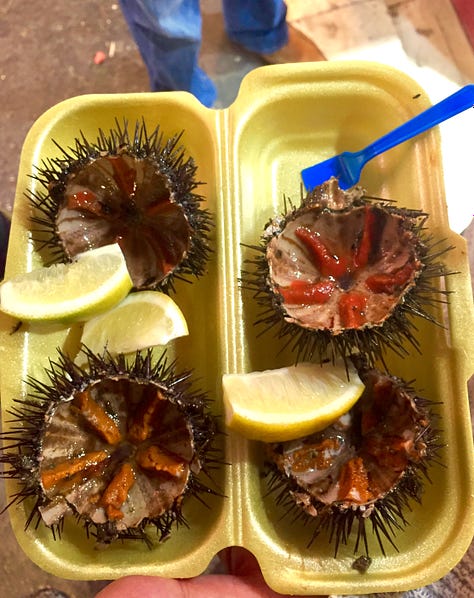

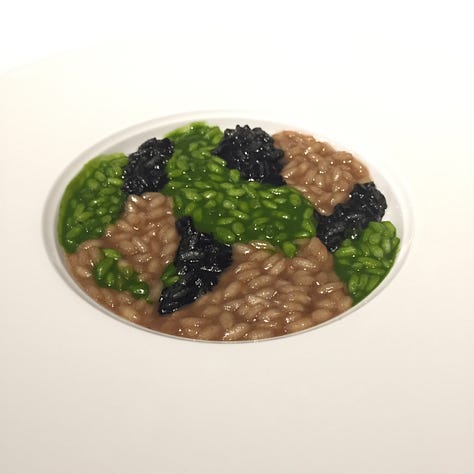
I guess I’m pretty deep in the weeds of fine dining—and it’s not just some passing fascination (like my fascination with pottery, or The Cold War, or breweries, or rock climbing, or coding, or photography, or…). No, this one has somehow stuck for over a decade.
I’ve been trying to work backwards, to piece together how this all started—and how it got so far out of control.
It’s hard to pinpoint, but I believe it may have began sometime in 2012, when I absentmindedly discovered Jiro Dreams of Sushi. That was an oh shit moment for me, because it was the first time I realized that dinner was about more than just food. That chefs could be craftsmen—artisans even.
From then on, I’ve been living in a cloud, where everything kind of blends together. No Reservations, Parts Unknown, Ugly Delicious, A Work in Progress, Salt Fat Acid Heat, The Omnivore’s Dilemma, Cooked, Yes Chef, Dirt, Heat, Kitchen Confidential, Medium Raw, Eat A Peach, Unreasonable Hospitality, You and I Eat the Same, Noma in Kyoto.
These are just some resources that have impacted my thoughts on food, culture, and hospitality.
It’s one thing to simply study the landscape—it’s another thing entirely to experience it firsthand. So in 2017, my partner Ash and I, decided to travel almost exclusively for food.
Since then, we have flown to Italy to eat at Osteria Francescana—which at the time, was the #1 restaurant in the world. We drove 2 hours across Sicily to eat frozen almond ice—called Granita—at Caffè Sicilia. We traversed the highlands of Peru (literally) to eat at a remote Michelin-starred outcropping called Mil. And days before, in Lima, we dined at Central, which has since been named the best restaurant in the world as well.
These are just some of my favorite experiences, and yet, I never really talk about them. Why? You know why. It makes me sound like a pretentious asshole. But let me explain.
Sure, I’ve flown to the other side of the world for just a few supremely expensive bites of foam, but I’ve also driven 4 hours to eat some incredible whole-hog BBQ at Rodney Scott’s, for less than $20 a plate. I don’t discriminate. All types of food has the capacity to teach.
But this begs the question, why?
It’s been my hope to always eat widely, and to cultivate a palate for food, much like a sommelier cultivates a palate for wine. Because I believe that, in doing so, I’ll be able to more deeply appreciate one of life’s most ubiquitous pleasures—tasty cuisine.
I also believe that, if you really want to appreciate the industry—and the remarkable culinary feats that even average restaurants are pulling off on a daily basis—you must work in a kitchen. If you can’t do that, you’ve got to learn how to cook—like really learn—in your own home. Despite working for over a decade in the industry when I was younger, I am at the age now where the former seems just about impossible. Therefore, I have opted for the latter.
So in our household—to the best of our ability—we try to perfect our Sardinian ragu, our vichyssoise and our Texas style smoked brisket. (Now, to be fair, we’ve only made the vichyssoise twice, because eating several cups of heavy cream and a stick of butter in one sitting probably isn’t the best for you.)
Which is to say, I am absolutely fascinated by the world of gastronomy. My obsession came on so gradually, and began so modestly, that I was completely unaware of the degree of its abnormality. That is, until my friend kindly pointed it out to me, and started with his pestering.
“You need to start a newsletter about the restaurant scene in Austin,” he said.
“Why me?”
“It could only be you!”
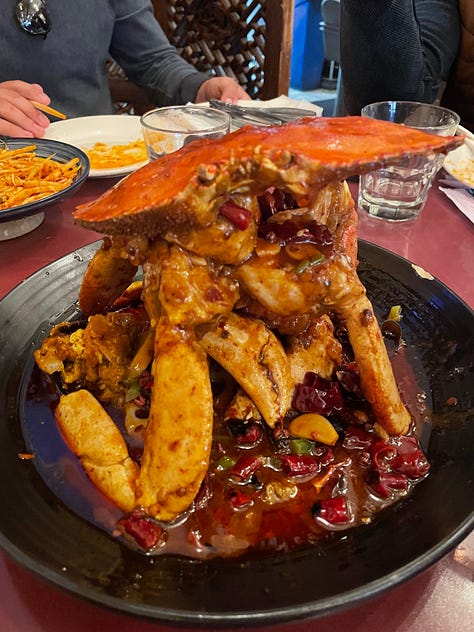

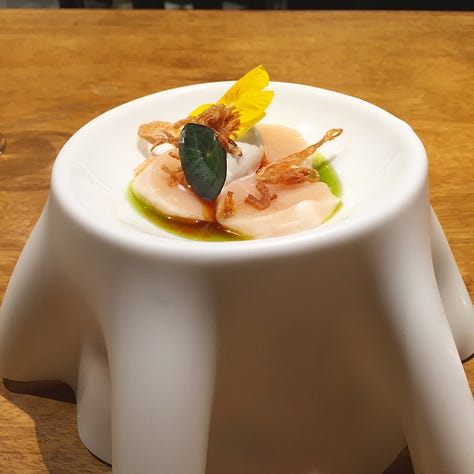
Food and finances are the two things that everyone feels emboldened to share their unqualified opinion about. One of my fears with starting a newsletter like this is that—I would be just another unqualified and unsolicited voice. Which tempers my gusto with a bit of hesitation.
I’ve also noticed that—at least on social media—whenever I’ve dipped my toe into this arena of food critiques, people get very defensive. For example, I once said that Austin’s food scene was average—not good, not bad, just average—and the comments section exploded. I was minutes from getting my ass digitally beat, when other commenters intervened, cooling the tension.
Food is so personal. And it’s personal because it touches on the notion of taste. To disagree with someone on taste, is to offend their sensibilities, and to invalidate their ability to judge good from bad. To disagree with someone’s taste, is to form a hierarchy of opinions—and no such thing can exist.
Okay, that’s bullshit.
And you know that’s bullshit too.
There are people who know more about food than we do, just as there are people who know more about art than we do.
Here something bound to bunch your britches: just because we like something, doesn’t mean that it’s good. Sometimes we’re under-qualified to determine what’s good and what’s bad. But that’s not the end of the world. Because, like anything else, we can cultivate our skills of taste and perception.
Gordon Ramsay and Wolfgang Puck elevated themselves to arbiter status, through years of work in professional kitchens. Alton Brown, who has brilliantly cultivated his taste has never worked in a restaurant, and yet is a recognized an worthy voice in the space. James Beard, the guy who the highest culinary award in the land is named after, wasn’t a chef either. He did, however, spend his entire life writing about food, and cultivating his palate.
So where does that leave us: Well it leaves me in a very uncomfortable position. One where my taste is certainly more cultivated than the average Joe, but also far from the greats. So in one way, I believe I can provide a useful insight to those who are trying to elevate their senses of taste, and are interested in learning more about food and hospitality culture.
While at the same time, I feel grossly unqualified to be speaking about this at all.
Yeah, so what? You’ve read some books, and worked at some places, and even eaten at some fancy restaurants. That doesn’t make you qualified to talk about food!
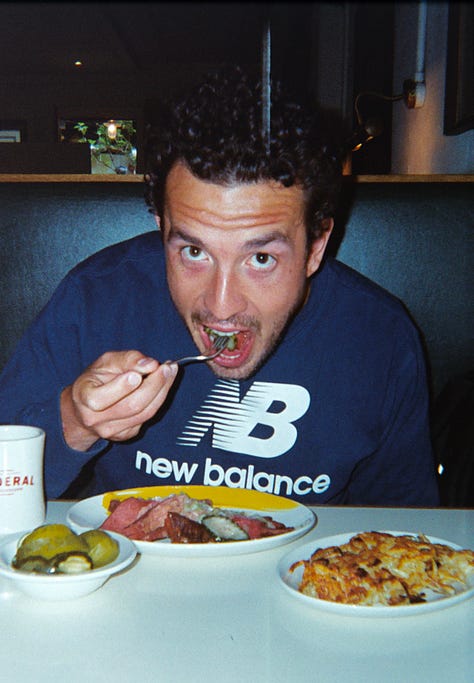
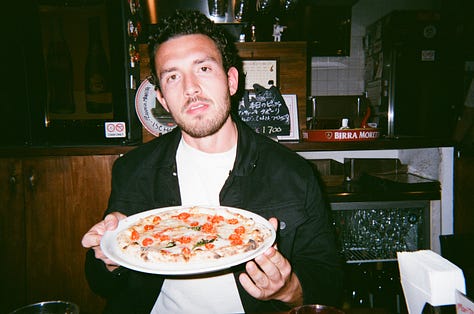
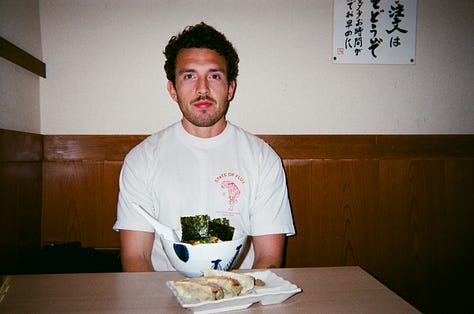
Let’s say a part of me wanted to actually write about food. That maybe, just maybe, I wanted to share the side of my life that I keep entirely hidden. And then let’s say I was able to put all of that aside and actually get to it—where would I even start?
I sent my friend a text asking for his advice.
“You could take it in so many directions!” he responded, “The beauty is that you have a good opinion on food and you are still relatively new to the city, so you have the perfect perspective to write from.”
I thought about it for a moment, and he continued, “Readers could explore Austin alongside you.”
That sounds more up my alley. I could be a culinary older brother, an experienced dumbass. I know some things, I’ve been to some places, I care about food—but I don’t know the first thing about Austin’s culinary scene. And that seemed like the perfect way to alleviate some of the weird pressure behind these swirling notions of taste, experience, and judgment.
So instead of being the arbiter of good or bad, maybe I could look at this as my own personal exploration. A food journal, if you will. Designed to help me hone my taste. Written for me to understand the local cuisine, ingredients, and hospitality scene in Austin better.
And instead of focusing on judgment and taste, I could write through a lens of curiosity. Asking myself: what can I learn from this experience, from this chef, and from this dish?
What if I shared that with people?
What if I took you on that journey with me?
—Zac




On the first day of Architecture school, they made us watch Jiro’s documentary. It was supposed to be a lesson on craft and dedication - so you’re perfectly right and valid in your special opinion on the gastro world bc it’s not just about ingredients and names, but also the art behind it all.
I like the sound of this journey. As someone who’s been in Austin for a fat minute, I’ll say that some of the best food I’ve had has also been some of the cheapest. I’m sure that dichotomy exists everywhere but something about the rapid growth and gentrification in atx is a lil extra backwards.
Sending this to a couple gastro nerds I know :)